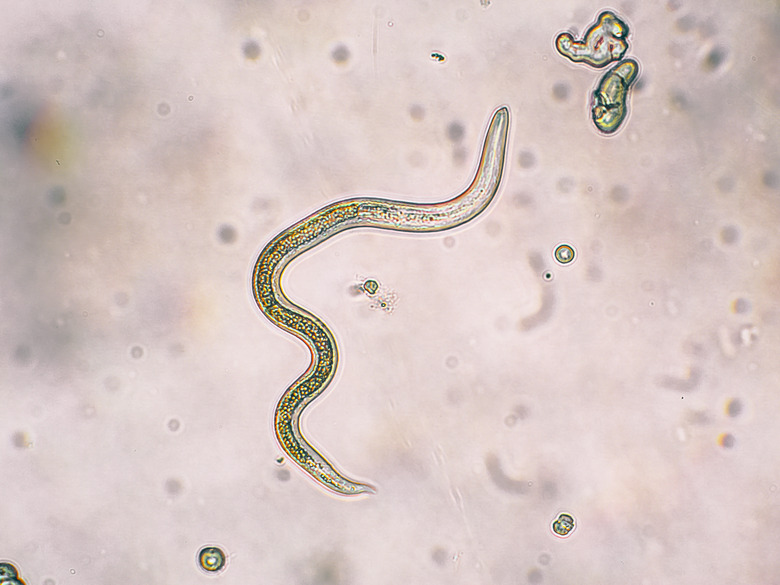How Do Roundworms Move?
What is a Roundworm
What is a Roundworm
Roundworms are also known as nematodes. They are parasites which infect mammals, including human beings. Roundworms reside in the intestinal tract and can reach lengths varying from 1 millimeter to 1 meter. Roundworms reside as eggs or larvae in dirt and are accidentally ingested where they begin to mature in the small intestine. Roundworm infection can cause breathing issues, stomach pain, weight loss, blood in stool and nausea and diarrhea.
Roundworm Life Cycle
Roundworm Life Cycle
Roundworms begin as eggs that have been passed from a roundworm adult through the body of an infected host. The eggs may be present in feces that mixes with soil or present in infected flesh. Once inside the host, the roundworm eggs or larvae will begin to mature and spread throughout the host body. As they grow and spread, their infection worsens and the damage to the host becomes worse. Once mature enough, the roundworms will mate and produce eggs which travel through the hosts intestines and reside in the feces waiting to hatch in the host or spread outside the body.
Roundworm Physiology & Movement
Roundworm Physiology & Movement
Roundworms have simple body designs. Their digestive system runs the length of their body and they feed off the host that they have infected. Their nervous system is comprised of two nerves, which handle the impulses for the body. Roundworms do reproduce sexually with male and female counterparts.
Roundworms move through the host's internal environment by thrashing their bodies using long muscles which only allow the parasite to move laterally. Roundworms cannot crawl.
References
Cite This Article
MLA
Hunter, Chad. "How Do Roundworms Move?" sciencing.com, https://www.sciencing.com/do-roundworms-move-5467795/. 22 November 2019.
APA
Hunter, Chad. (2019, November 22). How Do Roundworms Move?. sciencing.com. Retrieved from https://www.sciencing.com/do-roundworms-move-5467795/
Chicago
Hunter, Chad. How Do Roundworms Move? last modified March 24, 2022. https://www.sciencing.com/do-roundworms-move-5467795/
